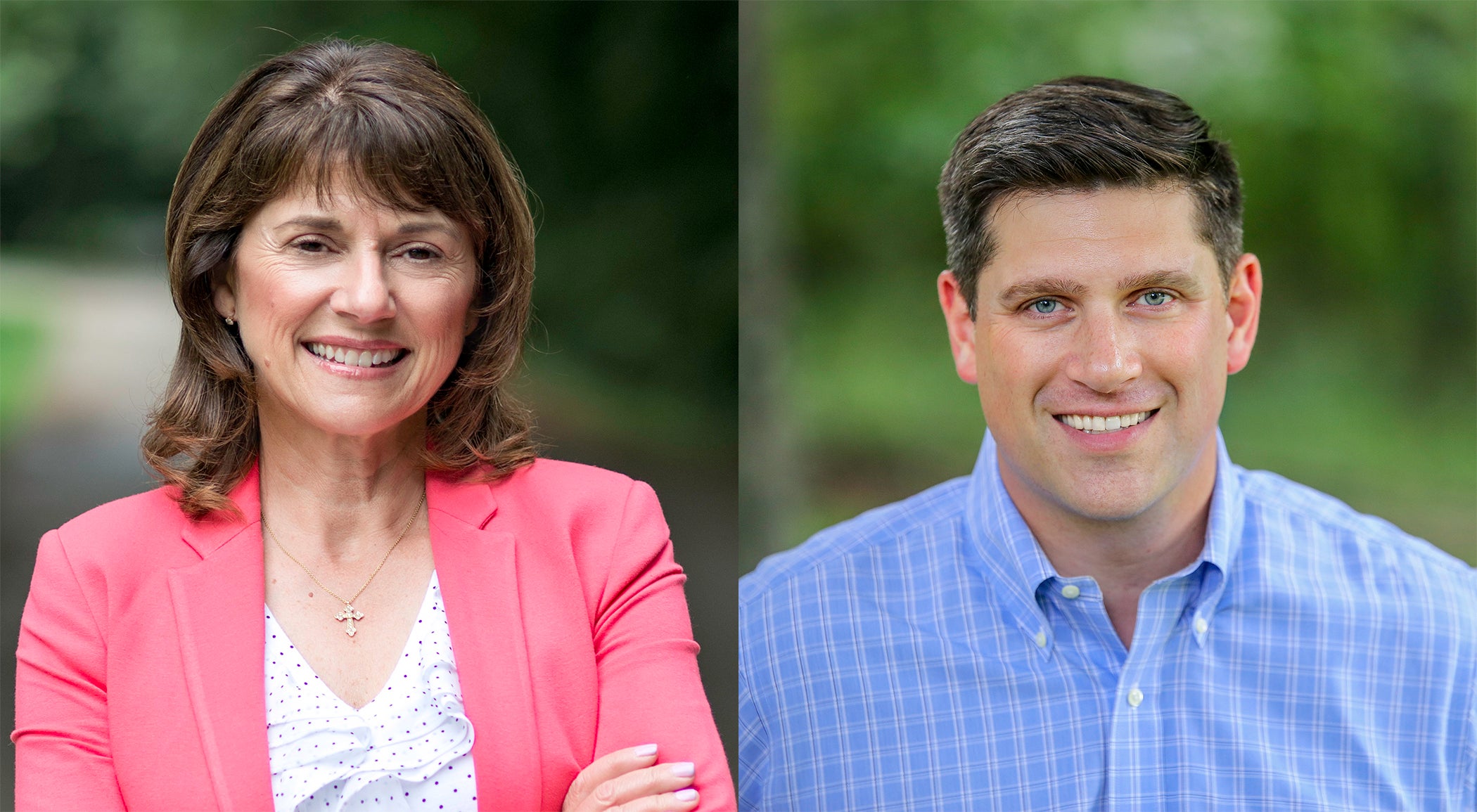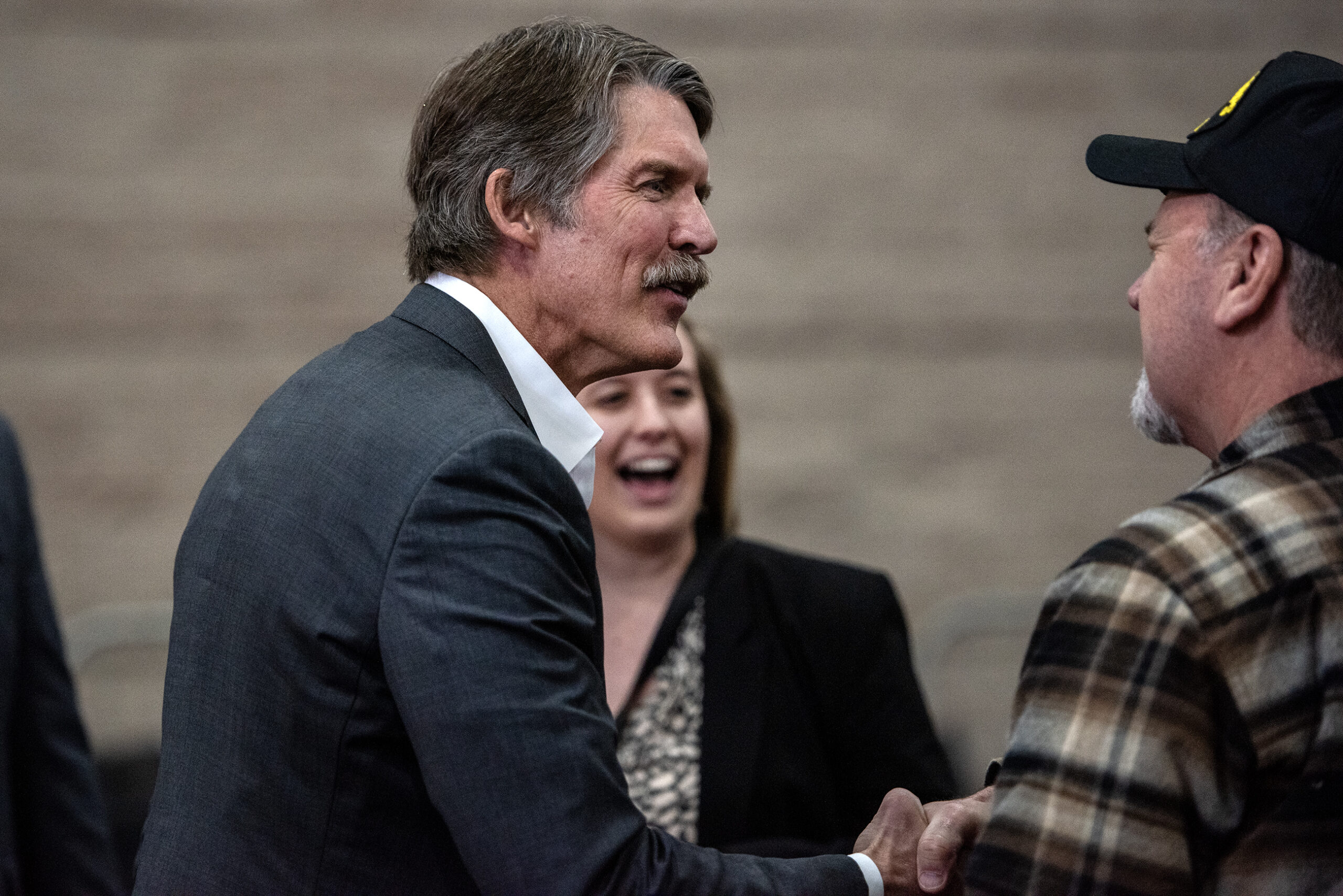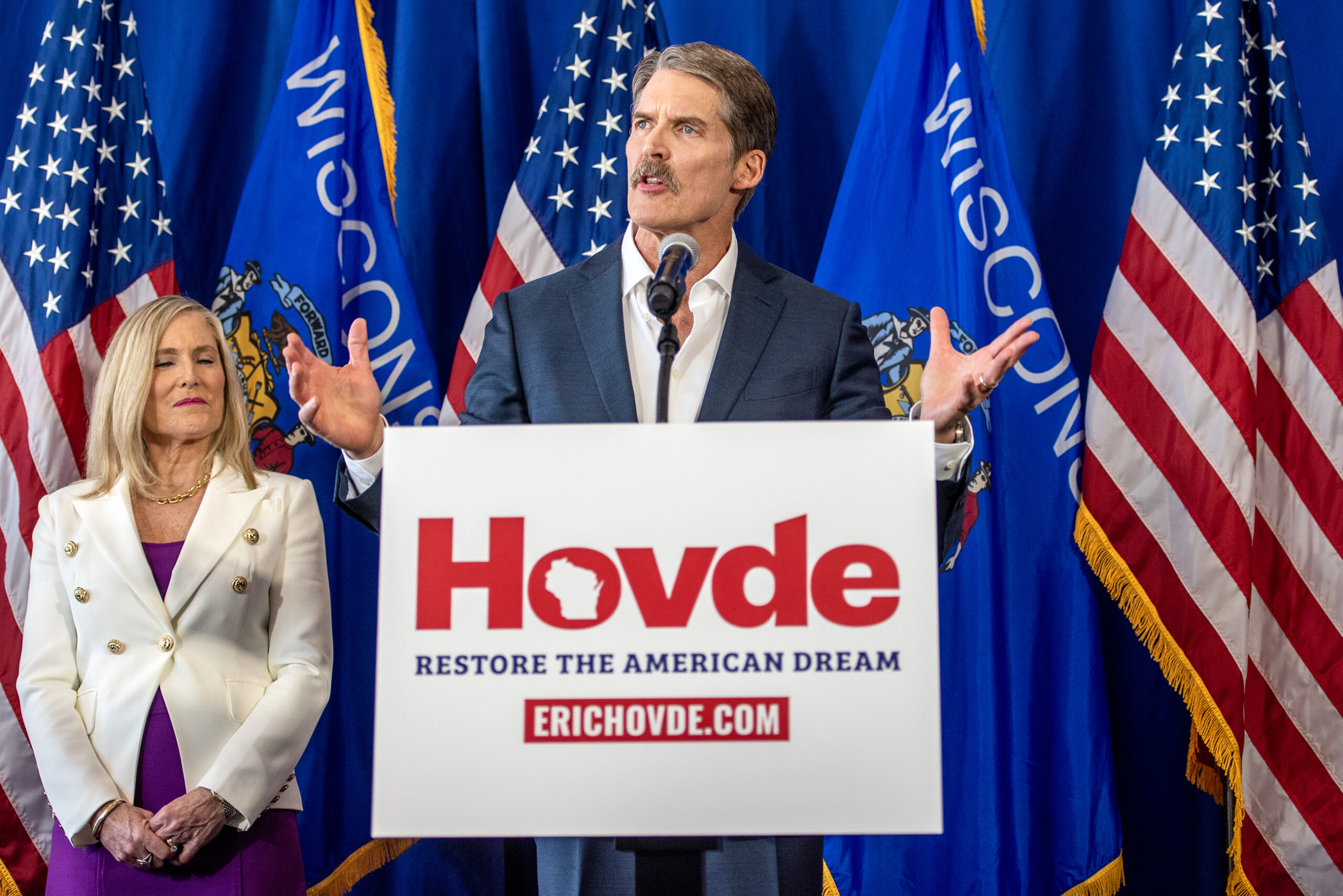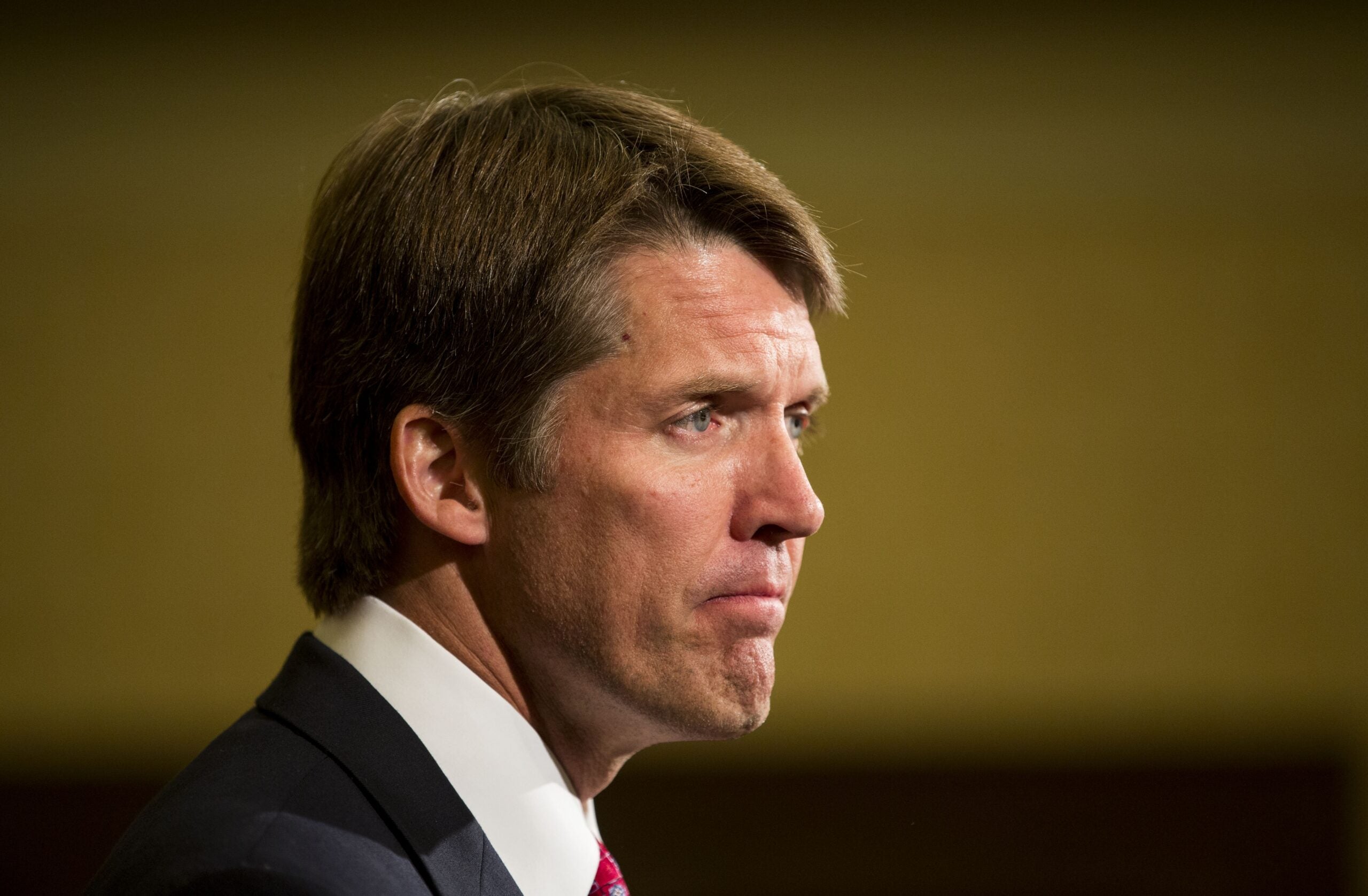Similarities were on display as the two GOP candidates in Wisconsin’s U.S. Senate race worked to differentiate themselves to voters at a Thursday evening forum in Madison.
Marine veteran Kevin Nicholson and state Sen. Leah Vukmir, R-Brookfield, who are facing off in August’s partisan primary for U.S. Senate, highlighted their vastly similar policy positions at an event hosted by the Republican Women of Dane County.
Where the candidates differed was how they presented what they would bring to Washington, if elected.
Stay informed on the latest news
Sign up for WPR’s email newsletter.
Vukmir, who won the state GOP endorsement at the party convention earlier this month, portrayed herself as a proven conservative.
“I’ve seen it, I’ve done it, I’ll do it again,” Vukmir told audience members. “We can’t afford to take a chance on the unknown.”
Nicholson was happy to embrace his identity as “the unknown,” however.
“I don’t want to join the club,” he said of Washington insiders. “You’ve got to be willing to break the glass, break the norms.”
On policy, the candidates voiced similar positions on issues including health care, gun control, and limiting the power of the federal government.
From left to right, Republican U.S. Senate candidates Kevin Nicholson and Leah Vukmir at a debate Thursday, May 31, 2018 in Madison. Laurel White/WPR
On health care, both championed a free market approach.
“What we should be doing is peeling away layers … we need an army of consumers,” Vukmir said.
The senator advocated for more consumer education and choice, a notion Nicholson also pushed. He called for increased price transparency for procedures and consumer choice, which he said would give consumers the ability to “make rational decisions” about their care.
“Absent that, health care spending is going to consume our entire (federal) budget,” he said.
In response to increased national attention on school safety, both candidates also said they support putting armed guards in schools.
Nicholson said he supports creating and maintaining security checkpoints in schools and funding armed guards or safety officers when possible. Vukmir said it should be left up to schools to decide whether they want armed guards on the premises — if they want that, she would support it, she said.
Both candidates repeatedly reinforced their desire to give more power to states, particularly regarding education.
“We need to bring that back to the states, where we know how to take care of things,” Vukmir said.
Nicholson said he would support eliminating federal education grants. He said that move would roll back federal influence on classroom policies, including whether or not schools follow Common Core standards.
Vukmir and Nicholson both expressed repeated support for President Donald Trump, from his work on trade to his push for increased military funding.
“Finally, we have a leader who is standing up to foreign leaders, rather than bowing to them,” Vukmir said.
Nicholson compared his perspective as a “political outsider” to the president’s.
The event was the second time the candidates faced each other in a debate. The last outing saw similar agreements on policy, but ended up a flare up over Nicholson’s military record.
Since then, party leaders, including incumbent GOP U.S. Sen. Ron Johnson, have called on the candidates to avoid mudslinging in the race.
Vukmir and Nicholson will face each other in August’s partisan primary. The winner of that race will face incumbent Democratic Sen. Tammy Baldwin in November.
Wisconsin Public Radio, © Copyright 2024, Board of Regents of the University of Wisconsin System and Wisconsin Educational Communications Board.





